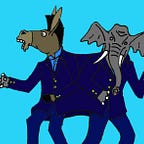Four Reasons Why Thoreau Would Empathize with Palestinians
In these times of moral contradiction, when wisdom is lacking among governments, we can call upon great thinkers for consultation. Henry David Thoreau, author of Walden (1854) and Civil Disobedience (1849), is a worthy choice as a counselor, having influenced the likes of Martin Luther King, Mahatma Gandhi and Leo Tolstoy.
We can call on Thoreau to counter the violently racist views of Israeli Prime Minister Benjamin Netanyahu. Netanyahu trotted out a nineteenth-century colonialist trope to justify the war against Gaza (“a battle of civilization against barbarians”). He joined a chorus of Israeli officials who refer to Palestinians as “savages.” Israeli Defense Minister Yoav added to the wiki-thesaurus, calling Palestinians “human animals.” An Israeli diplomat revised that to “unhuman animals.”
In Thoreau’s writings and actions, we can find his enlightened objections to Israeli words and actions regarding Gaza.
Reason One
Thoreau fought against linguistic dehumanization. In a period when Indians were regularly dehumanized as savages, as the US government’s justification for genocide, Thoreau upended the terminology (“so-called savages,” he said) and spent time in the woods with Indians, in search of spiritual revelation.
Reason Two
Thoreau opposed racist wars. His embrace of civil disobedience included his opposition to the Mexican-American War. Thoreau viewed the 1846 Mexican-American War “as a plot by Southerners to expand slavery into the Southwest.” Thoreau had already stopped paying his taxes in protest against slavery.
Reason Three
For Thoreau freedom of movement was sacred. He was an advocate for “sauntering,” from sainte terre (Holy Land). The mere thought of a people being fenced in and not allowed to walk freely would have horrified him. Hence, he became a “conductor” on the Underground Railroad, while writing against the Fugitive Slave Law. He would’ve been further horrified at the thought of a fenced-in population living exposed to repeated sniper fire and bombings by their captors. He wrote: “The only free road, the Underground Railroad, is owned and managed by the Vigilant Committee. They have tunneled under the whole breadth of the land.” (From “A Yankee in Canada, With Anti-slavery and Reform Papers”: ed. 1866)
Reason Four
Thoreau was among the radicals in the abolitionist movement. But you may ask, what does slavery have to do with Palestine? Ask Eva Illouz, Israeli-French sociologist, who wrote in 2014 to an Israeli public: “Very few struggles in history have centered on how one nation should treat a third group of people, but there are strong parallels between black slavery and Israel’s treatment of the Palestinians.” (From “47 Years a Slave, A New Perspective on the Occupation” Haaretz).
Thoreau’s “A Plea for Captain Brown” was delivered in 1859, in the lead-up to and aftermath of the execution of John Brown for murder, treason and inciting a slave insurrection. Brown’s militia had seized a federal armory in Harpers Ferry, West Virginia, engaging in a pitched battle that resulted in the deaths of 12 of his men and one U.S. marine.
Thoreau wrote: “Some eighteen hundred years ago Christ was crucified; this morning, perchance, Captain Brown was hung. These are the two ends of a chain which is not without links. He is not Old Brown any longer; he is an angel of light.” Coming from the architect of nonviolent civil disobedience, these words are layered with nuance.
Thoreau was to become a great influence on MLK and Gandhi. You may ask, where is the Palestinian Gandhi or King? Answer: either dead, crippled or in prison. One example of Palestinian civil disobedience: in Gaza, the 2018 nonviolent Great March of Return called for a lifting of the blockade and the right of Palestinian refugees to return to their villages. During the first six months of that weekly event, 150 protesters were killed by Israeli soldiers, from the other side of the fence, with 10,000 wounded, including journalists and paramedics.
If Thoreau had been around today, he would empathize with Palestinians, but he would also identify with courageous Israeli human rights activists, the equivalent of the abolitionists of his time.
Mark Cramer is the author of If Thoreau had a Bicycle: The Art of the Ride, “a witty, provocative, and thoroughly engaging read” (William Rossi, a leading Thoreau scholar, University of Oregon).
